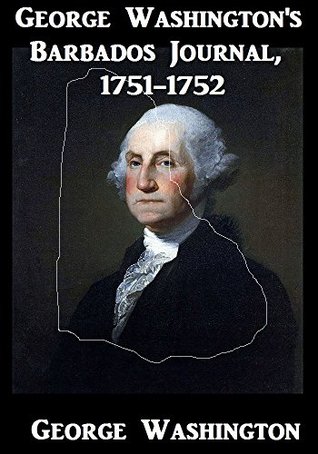- Bible
- Read the Bible
- Bible Versions
- Verse of the Day
- Reading Plans
- Verses by Topic
- Books of the Bible
- Bible Images
- Study
- Commentaries
- Concordances
- Dictionaries
- Encyclopedias
- Sermons
- Bible Atlas & Maps
- BP Wiki
- Devotionals
- Today's Devotionals
- Light of the World
- All Devotionals
- Inspirational Quotes
- More
- Picture Quotes
- Videos
- Inspirational
- Bible Study
- What The Bible Says
- Bible Q&As
- Daily Bread
- Bible by Genre
- Bible Stories
- Random Bible Verse
- Community
- Store
George Washington's Barbados Journal: 1751-1752
by George Washington
“George Washington’s Barbados Journal, 1751-1752” is a journal written by the future American president when he travelled to the island of Barbados with his brother Lawrence in 1751. Lawrence suffered from tuberculosis and it was hoped that the island‘s warm climate would improve himself.
Washington recorded his experiences sailing to and from the island, and his experiences and observations on the island. At the time he was still a teenager, just 19 years old.
Unfortunately some parts of the original manuscript were lost or damaged. This version of the journal has been edited, with spelling corrections, to make it easier to understand.
George Washington (1732-1799) is best known for leading the rebel forces during the American Revolution or the American War of Independence. He served as the first president of the nation. Today several locations in the United States are named after him, including the national capital Washington, D.C., and the state of Washington.
In Barbados the house where Washington stayed in 1751 has been preserved as a museum. UNESCO has designated it a world heritage site. The home is located in the Garrison area of Barbados, south of Bridgetown.
Washington recorded his experiences sailing to and from the island, and his experiences and observations on the island. At the time he was still a teenager, just 19 years old.
Unfortunately some parts of the original manuscript were lost or damaged. This version of the journal has been edited, with spelling corrections, to make it easier to understand.
George Washington (1732-1799) is best known for leading the rebel forces during the American Revolution or the American War of Independence. He served as the first president of the nation. Today several locations in the United States are named after him, including the national capital Washington, D.C., and the state of Washington.
In Barbados the house where Washington stayed in 1751 has been preserved as a museum. UNESCO has designated it a world heritage site. The home is located in the Garrison area of Barbados, south of Bridgetown.
BUY NOW
Kindle Edition, 23 pages
Published March 3rd 2015
© 2025 Bibleportal.com All rights reserved.

George Washington was the commander of the Continental Army in the American Revolutionary War (1775-1783) and served as the first President of the United States of America (1789-1797). For his central role in the formation of the United States, he is often referred to as the father of his country.
Washington was baptized into the Church of England. In 1765, when the Church of England was still the state religion, he served on the vestry (lay council) for his local church. Throughout his life, he spoke of the value of righteousness, and of seeking and offering thanks for the "blessings of Heaven."
The Electoral College elected Washington unanimously in 1789, and again in the 1792 election; he remains the only president to receive 100% of the electoral votes.
Washington proved an able administrator. An excellent delegator and judge of talent and character, he held regular cabinet meetings to debate issues before making a final decision. In handling routine tasks, he was "systematic, orderly, energetic, solicitous of the opinion of others but decisive, intent upon general goals and the consistency of particular actions with them.
Washington died in 1799. He has been consistently ranked by scholars as one of the greatest U.S. Presidents.
... Show more